You've most probably already heard the name Qobuz in the past couple of months. The streaming platform, allowing high-res downloads, drew attention with their high pay-per-stream rate and the fact they don't rely on algorithms to curate music.
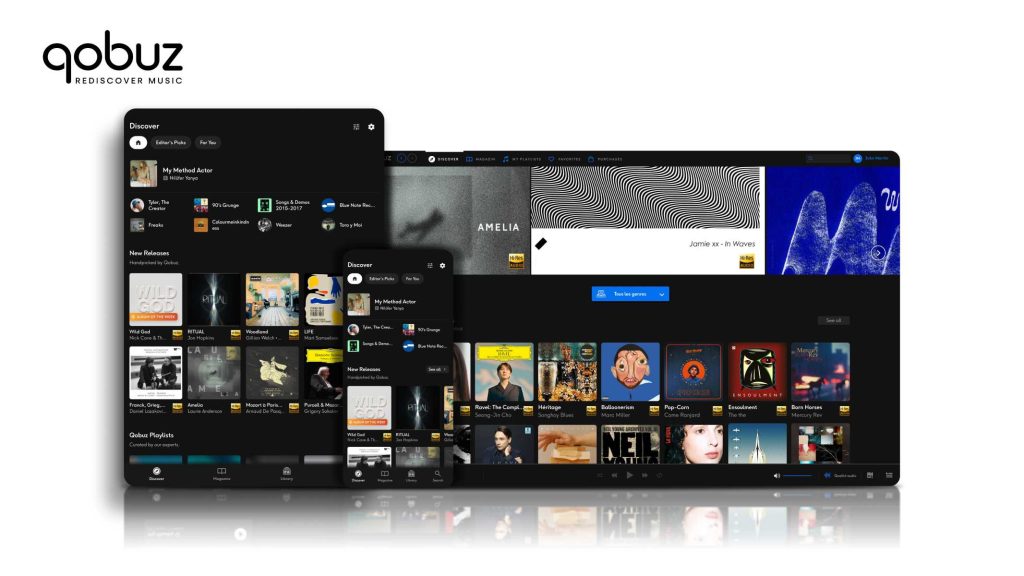
Founded in Paris in 2007, Qobuz has built its identity around thoughtful music discovery and expert curation. Beyond streaming, the company distinguishes itself with rich editorial content, including in-depth articles, reviews, and artist features that give listeners context and insight into the music they love. We've tapped into more detail about Qobuz and their playlist ecosystem in our article but Charlotte Saintoin, their Head of Editorial, stopped by to answer a few questions about human curation, storytelling, community, and the importance of art in our lives.
ps if you're curious, you can find Stereofox Records' discography here
If someone hears about Qobuz for the first time, what would be your 1-sentence elevator pitch to them?
Qobuz is a platform made for those who see music as an art form.
Stay up to date.
New music and exclusive updates in your inbox weekly.
How did you get into music journalism?
I’ve always been deeply passionate about culture - first through art and art history, and then through music. I’ve been working in the music world for a little over ten years now. My passion really started during an internship at the Festival du Monde Arabe in Montreal.
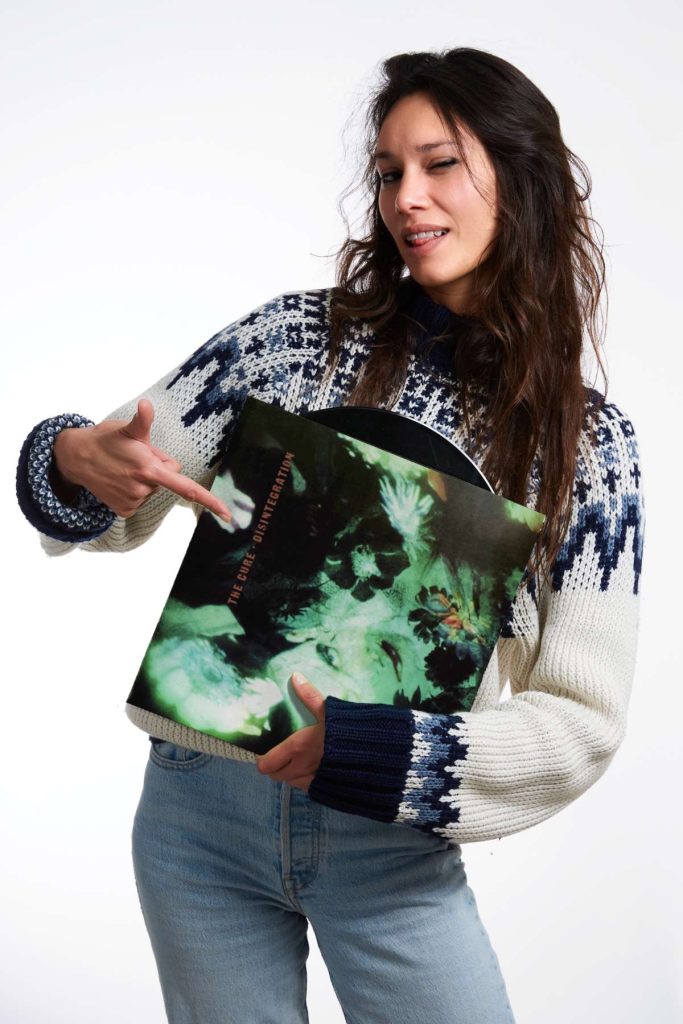
What are your key principles as Head of Editorial at Qobuz?
Always stay curious and explore albums you wouldn’t normally listen to. Listen to albums several times. Remain eclectic, and make sure each album is covered by the person most capable of doing it justice. Grasp the artist’s intent and give their work the recognition it deserves. And when writing, always aim for nuance and balance in criticism.
How can human curation survive the algorithmic industry we've found ourselves in?
You’ll get fast but you’ll never get deep with someone who can sense and feel. Art belongs to the realm of emotion, not algorithms, art transcends artificial intelligence, art stands as the antithesis of artificial intelligence. The bond created through human curation will always be more meaningful than the coldness and the hollowness of algorithms and, luckily, some of us need meaning and emotions.
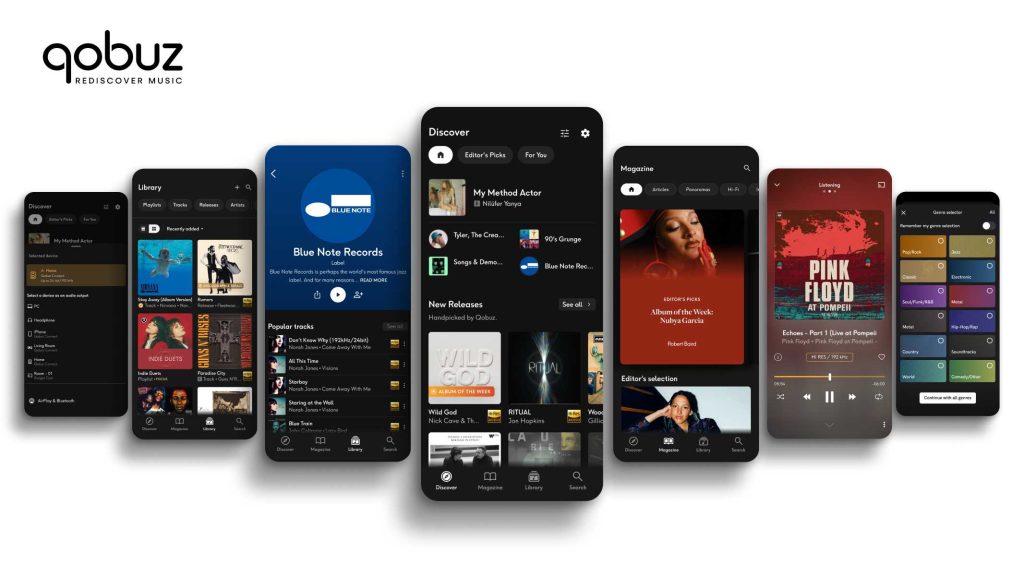
Your playlist ecosystem is very unique, i.e., the Listening with… curation offers an insight into artists' own headphones. How did that come to life?
We wanted to give artists a voice - to let them show the full scope of their musical universe. All of our playlists are curated editorially; each one tells a story. The teams spend time crafting them, writing a short text to introduce and contextualize the music. We cover all genres, movements, and eras. This year, we also launched the “Playlists Dig,” where members of the Music team share their own favorites, sometimes around a specific theme, sometimes not.
Gotta ask, what's your favorite playlist on Qobuz?
I don’t really have a favorite playlist because I mainly listen to full albums. But I love the artist playlists - they help you better understand their musical worlds.
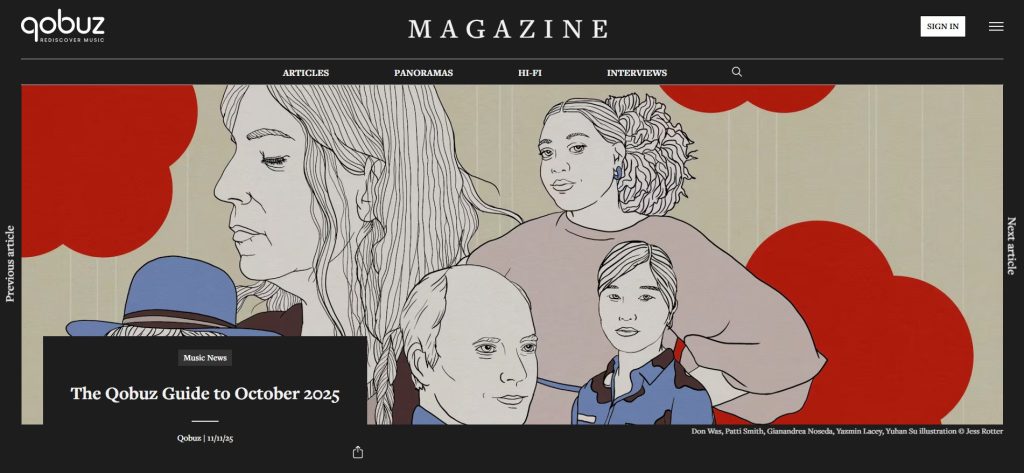
Qobuz has an editorial line (Qobuz Magazine) with articles, interviews & panoramas of artists. Why does storytelling still matter?
Through these articles, we move from passive to active listening. It’s so important to provide keys for understanding and interpretation - it offers a new perspective on a work. Music isn’t something to be consumed; it’s something to be lived and felt.
In a world of short-lived content, you provide listeners with the highest-quality audio. Why is that?
We believe music deserves better than disposable consumption. Artists pour everything into their sound, we make sure listeners experience it fully, the way it was meant to be heard. That matters to music lovers and audiophiles, and it matters to us.
Unlike most traditional DSPs, you're also offering purchasing & high-res downloads of music. Why did you decide to have this functionality at Qobuz?
It's been part of Qobuz since the beginning. Some listeners are collectors at heart, they want to own the albums that matter to them, not just stream them. We've always respected that relationship with music.
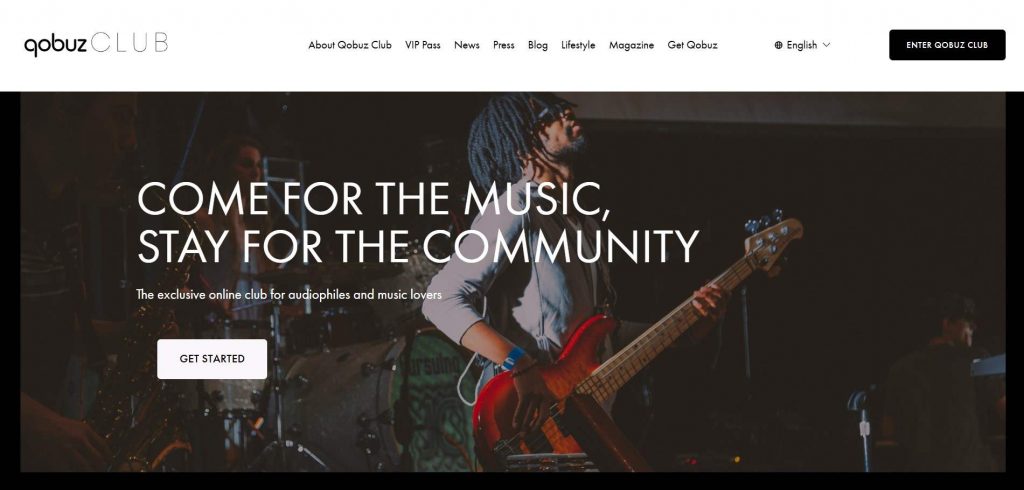
How important is community nowadays? Is this why you've created the Qobuz Club?
We've built a global community of people who are genuinely passionate about sound and music. They don't just consume, they want to discuss, share, debate. Qobuz Club gives them the space to connect with each other and with us.
What are the next steps for Qobuz?
We're growing fast. New countries are waiting for us, and we're coming. We're improving how users experience the platform every day. We're heading toward profitability. And through all of it, our mission stays the same: deliver every album, every track, in the quality it deserves.
If you could interview any artist (alive or deceased), who would that be?
There are plenty! I’ve always been fascinated by raw, wounded souls - I would have loved to speak with the great Édith Piaf, Billie Holiday, Chet Baker, or Lou Reed. And among those still with us, Robert Smith is the first name that comes to mind.







